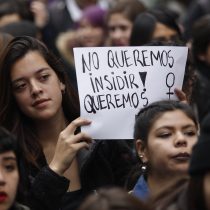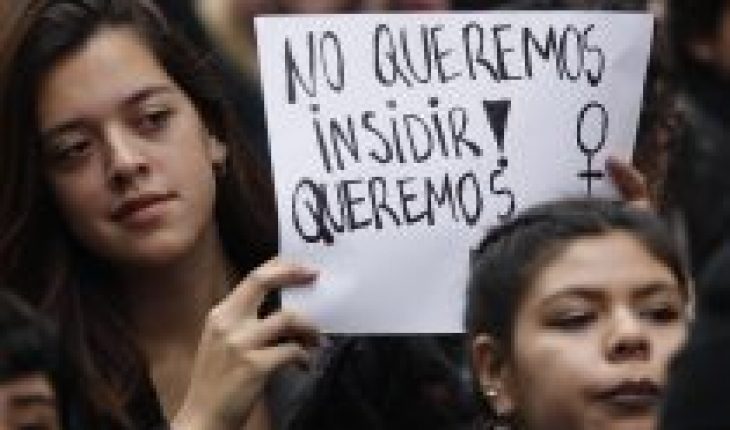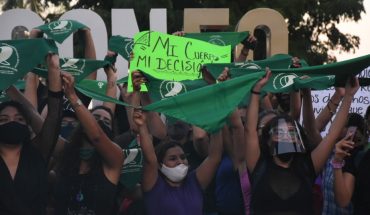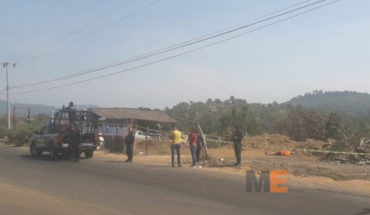
Over the past few years, freedom of education has been at the heart of the educational debate. Their defence has been used by those who have opposed all measures that have sought to move towards a more democratic and inclusive educational system.
The importance that the current Constitution attaches to freedom of education has made it a key part of the current educational system. When we are ad portas to initiate a historical constituent process, it is essential that those of us who are committed to the democratization of the education system hold a strong position on the role of freedom of education in the new Constitution.
We must be clear, we defend the existence of diverse educational institutions, but we oppose the use of freedom of education to maintain exclusionary educational projects. Those of us who identify as part of sexual diversity have recurrently seen how freedom of education has been used to refuse to provide comprehensive sex education or to implement anti-discrimination practices within educational establishments. Conservative sectors have appropriated the defense of pluralism and freedom in educational debate, while denying the right to education to a significant number of students.
On the one hand, they argue that freedom of teaching guarantees pluralism. However, those who advocate the existence of exclusionary educational projects are unaware of the pluralism that exists within the educational communities themselves. Today, in the schools and high schools of our country we find a growing cultural, ethnic, sexual and religious diversity. The diversity of society cannot be put aside, treating it only as a private experience, or refusing, engaging in discriminatory treatment of certain identities. School should be a place to learn the value of equality in diversity, which is fundamental to coexistence in democracy. Those of us who are committed to democratizing education must assume as their own the defense of pluralism, moving towards educational communities that understand its diversity as a characteristic that enriches them.
On the other hand, they argue that “freedom of education safeguards the freedom of parents to choose the educational project for their children.” However, the freedom of parents finds its limits in another freedom with which it coexists in the educational space: the freedom of students. School should be the place where students can access world visions other than their families and, through criticism and reflection, begin to explore their freedom and experience life in democracy. This is vital to the process of shaping identity, especially at such an important stage for personal development. Those who seek to deny that their children can access certain curricular content (such as education in sexuality and affectivity) are undermining their freedoms to choose for themselves what they want to be and defend. Perpetuating a model in which parents bubble their children only strengthen social segregation and disconnection between the different realities that cohabit our country, contributing to the endurer of classism, racism, homolesbotransphobia and other manifestations of discrimination and stigmatization.
We can only guarantee the existence of a variety of educational projects, which value the pluralism that exists within educational communities and that prioritize the development of the freedom of students, if we recognize that freedom of education must have established limits and minimums: the guarantee of the right to education and the inescapable respect for human rights. No educational project in a democratic society can oppose the dignity of people.
Conservative sectors have succeeded in installing the disjunction of educational discussion between freedom of education and the right to education. Against this, we must change the terms of the debate. In the New Constitution, education should be a fundamental right, guaranteed by the State, that horizons integral human development and as a foundation the promotion of human rights, democracy, diversity and social justice. Ensuring that right is that we can democratically discuss the degree of freedom of education and regulatory capacity of the Eyou will have education in our country.
In the classrooms you will find various stories, identities and ways to see the world. Those who use freedom to exclude do not live up to our country, fit them great, and need to deny our diversity to feel at ease. No more. The constituent process that Chile is living gives us the historical possibility of discussing which country we want to build, and consequently which citizens we want to form in the future. Public education and its quality must once again be our priority, as it will be the best way in which together we can redirect the course of our country. For better democracy and a new citizenship, new Constitution and new Education for Chile.
The content poured into this opinion column is the sole responsibility of its author, and does not necessarily reflect the editorial line or position of El Mostrador.





